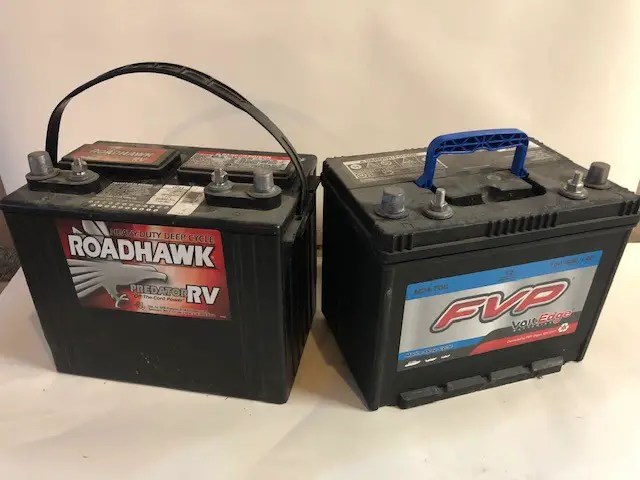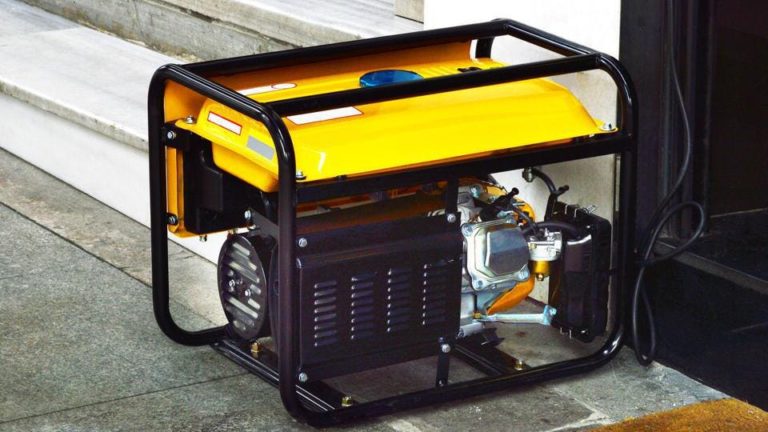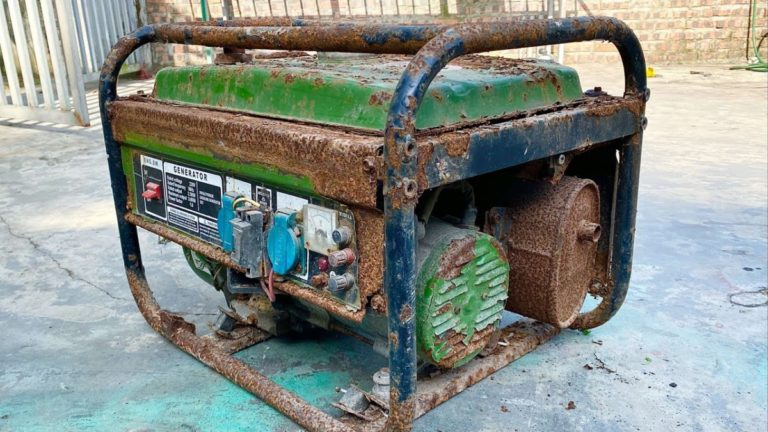When it comes to powering off-grid homes with renewable energy, solar energy storage is a critical component.
The type of battery used can have a significant impact on the system’s performance, reliability, and cost.
Homeowners and builders need to carefully consider their options when selecting a battery for their solar energy storage system.
We will compare different types of batteries commonly used in off-grid solar energy systems, discussing their advantages, disadvantages, and typical applications.
We’ll explore lead-acid batteries, lithium-ion batteries, and flow batteries, focusing on factors such as capacity, lifespan, maintenance needs, and cost.
By the end of this post, readers will have a comprehensive understanding of the strengths and weaknesses of each battery type and be able to make informed decisions when selecting a solar energy storage solution for their off-grid home.
Lead-Acid Batteries
These are the most commonly used batteries for solar energy storage due to their established supply chain, low cost, and established performance. They are reliable and easy to maintain.
The lead-acid battery has been in use for over a century, making it one of the most mature and reliable energy storage solutions available.
This maturity translates to a well-established supply chain, which results in a lower cost per watt-hour of energy stored compared to newer battery technologies.
Lead-acid batteries are relatively easy to maintain, with a simple watering system that ensures proper battery function.
This simplicity, combined with their high discharge rates and deep discharge capability, makes lead-acid batteries an attractive choice for solar energy storage applications, especially for residential and commercial systems.
Lithium-Ion (Li-ion) Batteries
These are more expensive than lead-acid batteries, but they have higher energy density, longer lifetimes, and better performance at higher temperatures. They are well-suited for off-grid solar energy storage due to their long cycle life and low self-discharge rate.
Lithium-ion batteries are a superior choice for off-grid solar energy storage due to their high energy density, longer lifetimes, and superior performance at higher temperatures.
While they are more expensive than lead-acid batteries, their advantages make them well-suited for off-grid solar energy storage.
For instance, lithium-ion batteries have an energy density that is around 2-3 times higher than lead-acid batteries, which means that they can store more energy in a smaller space.
Lithium-ion batteries have a longer lifetime, typically lasting for 10-15 years, compared to 5-10 years for lead-acid batteries.
This means that you’ll need to replace your batteries less often, saving you money in the long run.
Furthermore, lithium-ion batteries are less affected by high temperatures, making them a better choice for off-grid solar energy storage systems that are exposed to harsh weather conditions.
With their long cycle life and low self-discharge rate, lithium-ion batteries are an excellent investment for anyone looking to store solar energy for their off-grid home or business.
Flow Batteries
These batteries store energy in a liquid electrolyte solution and are well-suited for long-duration energy storage applications, making them a good option for off-grid solar energy storage. They are scalable and modular, making them easy to expand or reduce in size as needed.
These batteries, utilizing liquid electrolyte solutions, excel in long-duration energy storage, making them an ideal choice for off-grid solar energy storage.
Their modular and scalable design enables seamless expansion or reduction in size as needed, making them highly versatile.
This attribute allows homeowners and businesses to select the perfect battery size for their specific energy requirements, budget, and space constraints.
Furthermore, the liquid electrolyte solution enables the batteries to store a significant amount of energy, making them a reliable choice for long-term energy backup.
As off-grid solar energy systems become increasingly popular, these batteries provide a solid solution for storing excess energy generated during the day for use at night or during periods of low solar radiation.
Overall, these batteries offer a flexible and efficient option for off-grid solar energy storage, ensuring a consistent supply of energy for homes and businesses.
Sodium-Ion Batteries
These batteries are similar to lithium-ion batteries but use sodium instead of lithium. They are more affordable and have a more stable supply chain, making them a promising option for off-grid solar energy storage.
Sodium-ion batteries offer a promising alternative to lithium-ion batteries for off-grid solar energy storage.
These batteries share similarities with lithium-ion batteries, but use sodium instead of lithium, making them more affordable and more reliable in terms of supply chain.
The use of sodium allows for a more stable and less expensive material, reducing the cost of production and making it a more accessible option for individuals and businesses looking to adopt off-grid solar energy storage systems.
Sodium is an abundant element, which ensures a stable supply chain, unlike lithium, which is subject to fluctuations in demand and supply.
This stability in the supply chain, combined with their affordability, makes sodium-ion batteries a compelling option for those looking to harness the power of solar energy and store it for later use.
With their potential for long lifetimes and high capacities, sodium-ion batteries are poised to play a important role in the future of renewable energy storage.
Vanadium Redox Batteries
These batteries use a vanadium salt in solution and are well-suited for long-duration energy storage applications. They have a low-cost and sustainable supply chain and are robust and reliable.
These vanadium redox batteries offer a cost-effective and sustainable solution for long-duration energy storage needs.
The vanadium salt in solution is a key component that provides a high level of energy density and stability.
The batteries are well-suited for long-duration applications due to their robust and reliable design, which minimizes the risk of failure or degradation over time.
The supply chain for vanadium is well-established and sustainable, ensuring a consistent and low-cost supply of materials.
This makes these batteries an attractive option for a wide range of energy storage needs, from renewable energy integration to backup power systems.
With their long lifespan and low maintenance requirements, these batteries provide a dependable and cost-effective solution for long-duration energy storage.
Zinc-Air Batteries
These batteries have high energy density, low cost, and are well-suited for off-grid solar energy storage due to their high efficiency and long lifetimes. However, they require more complex maintenance and have a less established supply chain.
These advanced batteries offer numerous benefits for off-grid solar energy storage, including high energy density, low cost, and long lifetimes.
With high efficiency and long lifetimes, these batteries can store excess energy generated by solar panels during the day and provide reliable power during the night or on cloudy days.
Their low cost makes them an affordable option for homeowners and businesses looking to switch to renewable energy.
However, these batteries require more complex maintenance compared to traditional lead-acid batteries, such as regular monitoring of temperature and charge cycles.
Moreover, the supply chain for these batteries is not as established, which may lead to longer lead times and potential reliability issues.
Despite these challenges, the benefits of these batteries make them an attractive option for those looking to switch to off-grid solar energy storage.
Lithium-Iron Phosphate (LiFePO4) Batteries
These batteries have a long cycle life, high energy density, and low self-discharge rate, making them well-suited for off-grid solar energy storage. They are more expensive but offer high performance and a well-established supply chain.
Lithium-ion batteries offer several key advantages for off-grid solar energy storage.
First, they have a long cycle life, meaning they can be deeply discharged and recharged many times without losing capacity.
This makes them well-suited for off-grid solar systems, which often require more energy storage due to the intermittent nature of solar power.
Lithium-ion batteries have a high energy density, meaning they can store more energy per unit of weight and volume than other types of batteries.
This is important for off-grid solar systems, which often have limited space and weight constraints.
Furthermore, lithium-ion batteries have a low self-discharge rate, meaning they can remain in a state of charge for extended periods of time without losing power.
This is important for off-grid solar systems, which may not be able to draw energy from the grid during periods of low sunlight or other factors.
While lithium-ion batteries are more expensive than other types of batteries, their high performance and well-established supply chain make them a worthwhile investment for off-grid solar energy storage.
The established supply chain ensures that there is a reliable source of high-quality batteries, which is important for maintaining the performance and longevity of the off-grid solar system.
The high performance of lithium-ion batteries means that they can provide the necessary energy storage for off-grid solar systems, even during periods of low sunlight or other challenges.
Overall, lithium-ion batteries are a solid choice for off-grid solar energy storage due to their long cycle life, high energy density, low self-discharge rate, and established supply chain.]]]>
Lithium-ion batteries are the ideal choice for off-grid solar energy storage due to their exceptional performance and well-established supply chain.
Unlike other types of batteries, lithium-ion batteries have a long cycle life, high energy density, and low self-discharge rate, making them perfect for off-grid solar systems.
This means that they can remain in a state of charge for extended periods of time without losing power, even during periods of low sunlight or other challenges.
The established supply chain ensures that there is a reliable source of high-quality batteries, which is important for maintaining the performance and longevity of the off-grid solar system.
Moreover, the high performance of lithium-ion batteries ensures that they can provide the necessary energy storage for off-grid solar systems, even during periods of low sunlight.
This is because the batteries are able to store more energy per unit of weight and volume than other types of batteries, such as lead-acid batteries.
This means that less space is required for the same amount of energy storage, which is essential for off-grid solar systems that often require compact, lightweight batteries.
The established supply chain ensures that there is a reliable source of high-quality batteries, which is important for maintaining the performance and longevity of the off-grid solar system.
The established supply chain ensures that there is a reliable source of high-quality batteries, which is important for maintaining the performance and longevity of the off-grid solar system.
These factors make lithium-ion batteries the best option for off-grid solar energy storage.
The use of lithium-ion batteries for off-grid solar energy storage offers numerous advantages over traditional lead-acid batteries.
Lithium-ion batteries have a long cycle life, meaning they can be charged and discharged many times without losing their capacity, making them well-suited for off-grid solar energy storage where the energy demands are unpredictable and variable (text).
Lithium-ion batteries have a high energy density, which means they can store more energy per unit of weight and volume than lead-acid batteries, allowing for more efficient energy storage in smaller spaces (text).
Furthermore, lithium-ion batteries have a low self-discharge rate, which means they lose less energy over time, even when not in use, compared to lead-acid batteries (text).
These advantages make lithium-ion batteries the best option for off-grid solar energy storage, as they can provide a reliable and efficient source of energy even in remote areas with unpredictable energy demands.
Lead-Acid Batteries
These batteries have a well-established supply chain and low upfront cost but are heavy and have a lower energy density than other battery types. They are a suitable option for off-grid solar energy storage but may not be ideal for long-term energy independence.
Lead-acid batteries have a well-established supply chain and relatively low upfront cost, making them a practical choice for off-grid solar energy storage.
However, they are heavy and have a lower energy density compared to other battery types, such as lithium-ion batteries.
This means that they require more space and volume for the same amount of energy storage.
Lead-acid batteries have a shorter lifespan and are more prone to degradation, which can limit their long-term energy independence potential.
Despite these limitations, lead-acid batteries remain a reliable and cost-effective option for off-grid solar energy storage, especially in areas with limited space and resources.
Want More? Dive Deeper Here!
Hey there! If you’re the type who loves going down the rabbit hole of information (like we do), you’re in the right spot. We’ve pulled together some cool reads and resources that dive a bit deeper into the stuff we chat about on our site. Whether you’re just killing time or super into the topic, these picks might just be what you’re looking for. Happy reading!






